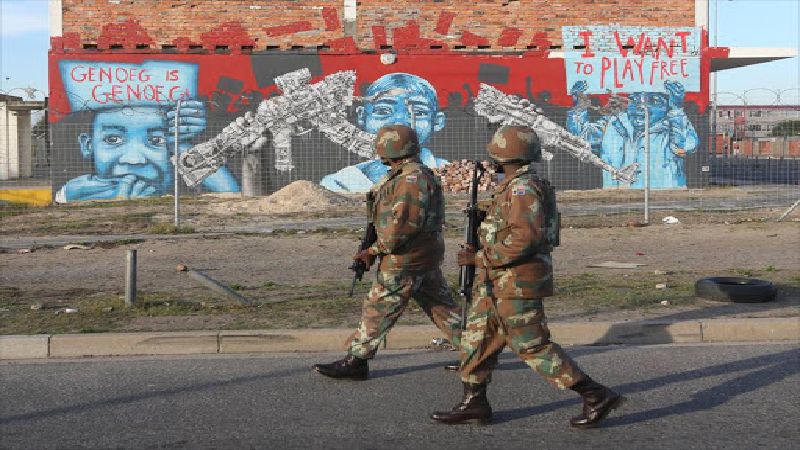A provincial strategy hub and safety organisations in communities are at the heart of a new plan to combat gangsterism in the Western Cape.
The plan was drawn up after “high-level input from government and civil society members at five intense workshops” in 2018, and handed to the provincial community safety department in February.
Among the 22 “critical actions” it calls for is the legalisation and regulation of all narcotics to bring them into line with alcohol and cigarettes.
A new think-tank set up by eminent medics, the SA Drug Policy Initiative, leaked the provincial plan on its website on Tuesday and criticised Premier Alan Winde’s government for “flouting an official report that calls for the legal regulation of illicit drugs to help tackle organised crime and gangsterism”.
But Cayla Murray, spokesperson for community safety MEC Albert Fritz, said the plan was still in the middle of a “comprehensive consultation process”.
She added: “This was conducted through the provincial joint intelligence and operational structure, which is a forum co-chaired by the SA Police Service, the SA National Defence Force, the State Security Agency and role-players within the criminal justice cluster.
“The SAPS requested a further opportunity to comment and engage on the content of the document, which is currently under way.”
Once the police feedback was received, the plan would be tabled with the provincial cabinet for approval, she said.
Management consultant Romaney Pinnock, who compiled the report with her gang-expert father Don Pinnock, said the fate of the plan would then be at the mercy of political will.
“There have been plans like this before, some of them have been very good, and nothing has come of them,” she said.
The first critical action in the blueprint is the establishment of a provincial gang strategy hub, which the Pinnocks recommend should have full-time staff and report to the premier.
The second step is to set up pilot neighbourhood safety hubs. These will develop safe spaces in communities, target young people at high-risk of joining gangs by offering them alternatives, and offer training to parents, grandparents and adult mentors.
Gangs are appealing to young people, the Pinnocks said in the report, because membership offered what society should provide but often did not: “A social context, earning opportunities, emotional support, a surrogate family, mentorship, a sense of pride and belonging, protection, bragging rights and a sense of ‘cool’.”
They added: “If these needs can be met pro-socially within a safe setting, gangs would lose their attraction. Understanding this … is the essence of this report.”
The Pinnocks proposed interventions in six social spheres:
- Policing and criminal justice;
- Peer groups;
- Families;
- Place-making and community cohesion;
- Health and youth wellbeing; and
- Education.
The scope of these interventions meant the provincial strategy hub would need members from numerous government departments and civil society, they said.
“If politics could be set aside in the interests of community safety, the hub would ideally report to both the provincial premier and the provincial commissioner of police,” said the report.
The Pinnocks said consideration should be given to declaring the gang issue a disaster in order to mobilise strategies, interventions and budgets.
The SA Drug Policy Initiative said “an entire section of the document explains why legalisation and regulation of illicit drugs is fundamental to any lasting solution to drug-related violence”.
(SOURCE: TIMES LIVE)






 WhatsApp us
WhatsApp us 

